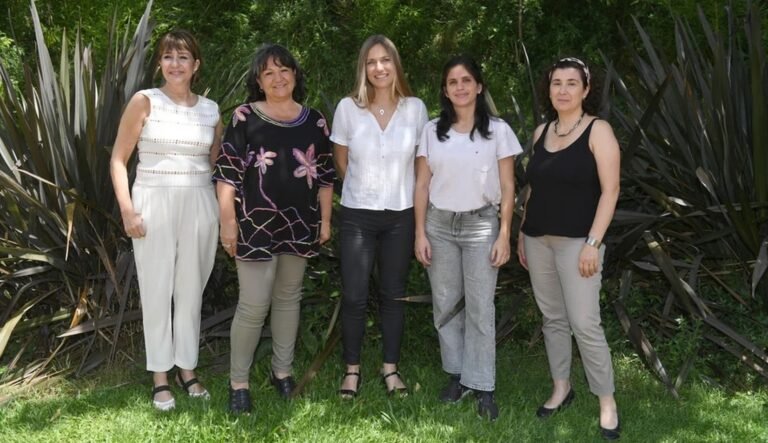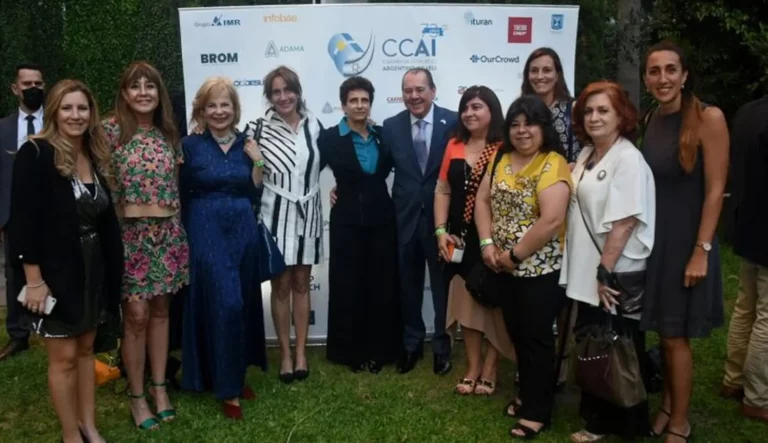Women leaders: they build bridges and share knowledge with an open view of the world
By Valeria Shapira, for La Nación
The Pollera Pantalón organization makes its own background available to other women to generate business agendas and make visible those who make positive contributions from the private sector..
One morning in 2022, in the municipality of Vantaa – one of the four municipalities that make up the Helsinki metropolitan area – the mayor, Ritva Viljanen, talks to a group of women about multiculturalism, education in Finland and citizen participation in the management of public affairs. A Master in Social Sciences and Master in Law, Viljanen answers briefly and concisely when someone asks her how she managed to reach high-level positions as a woman: “If the chair is there, just take it.”
Her interlocutors are part of a delegation from Pollera Pantalón (PP), an organization that was born as an initiative in 2018, in Argentina, when the thirteenth G-20 summit was being planned. A handful of professional women, leaders in various disciplines, decided that they were not going to wait for the business chambers made up mostly of men to invite them to be part of it; nor were they going to complain about why they were not invited. They said to themselves: They are doing well. Let's see how we are doing.
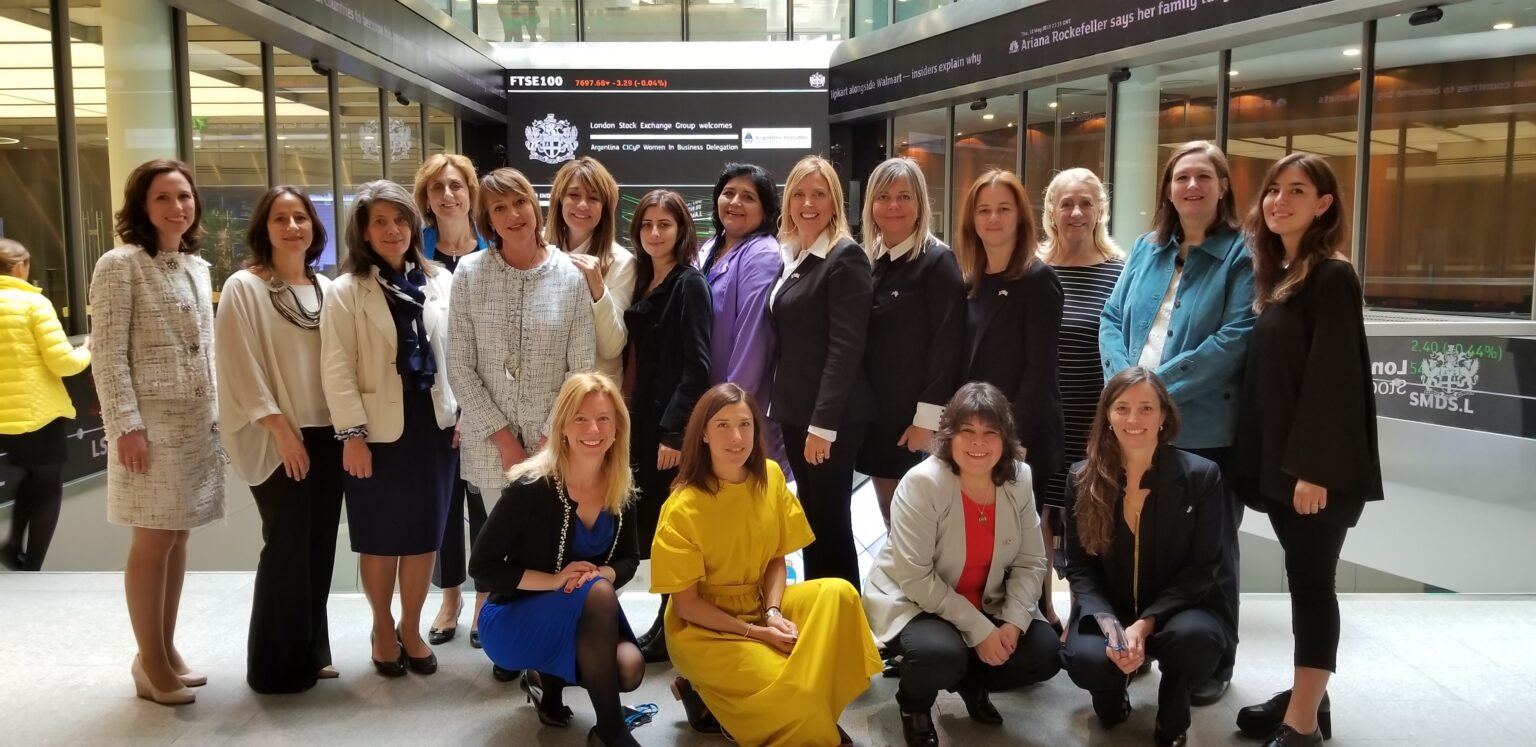
Since that day, they have not stopped. They have already completed four missions abroad (United Kingdom, Armenia, Israel, Finland), where they have arranged interviews with politicians, academics and entrepreneurs (especially with women), visits to public bodies, companies and civil society institutions and also after-dinner conversations, where they spontaneously developed a way of working that is now a constitutive part of the organization: they all became selflessly consultants on the topics of the others. Today, they define themselves as united “to share knowledge and seek entrepreneurial opportunities” and to “synergisely create new opportunities and solutions, transforming ourselves into a bridge between different sectors and regions in our country and in the world.”
What empowers powerful women? “We all had a professional career, most of us without glass ceiling experiences. We were not united by the desire to discuss gender issues, or to have an agenda on female quotas or the role of women in organizations,” says Fabiana Ricagno, lawyer, founder and president of Pollera Pantalón, partner at GER and director at Telteco. “We came together because we share a different outlook: that of having confidence in oneself, of creating opportunities, of focusing on merit rather than quota. The world is unequal (we know this), but we are not interested in being empowered but rather in focusing on the fact that a personal project is possible, that this project must be wanted, fought for and supported by others who have already achieved it and can help. Women who do and work often have as a common denominator the lack of confidence generated by the hypercritical view of being women and managing a company, a foundation or any organization that requires leadership skills.”
Since they began to think together, they understood that “the strength lies in the diversity of the group,” says Maricel Lungarzo, an accountant, director at Banco Comafi and member of Pollera Pantalón. “We don’t fly trite flags. We maintain, as someone once said, that opportunities dance with those who are already on the dance floor. Many times, we don’t take those opportunities. Out of fear, pressure, ridiculous perfectionisms or family situations. But we know that if you dare and get involved, in whatever you want, at some point you will dance.”
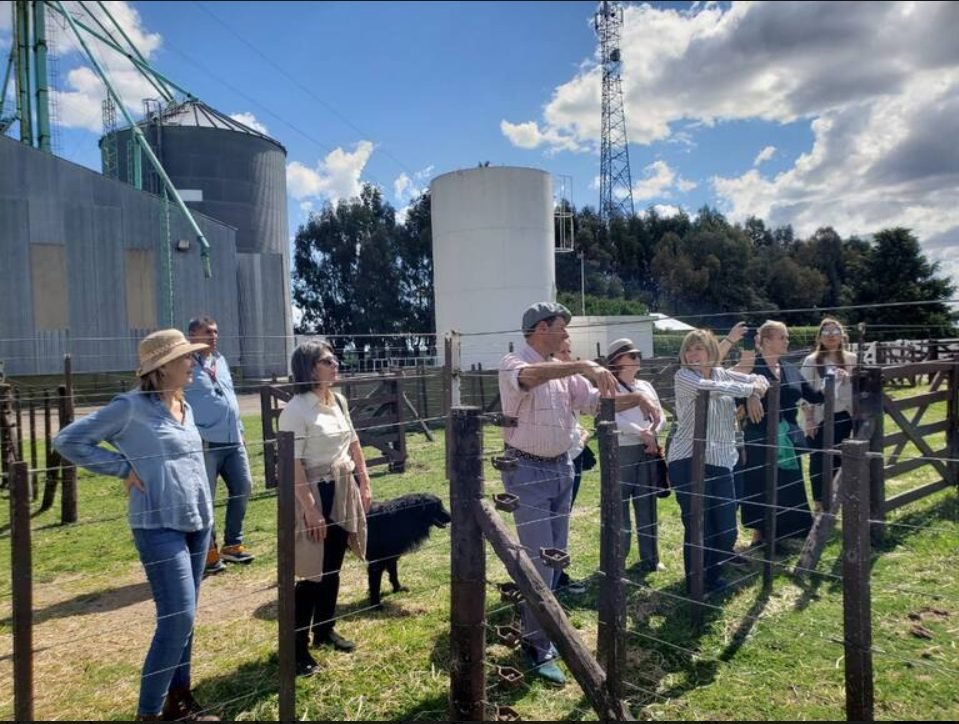
The case of Carmen Laffont, among many others, illustrates this vision. A retired teacher, she runs a Basic Education Center for Youth and Adults (CEBJA) in Mendoza. Together with other women, she created a space where they teach programming for free –Chicas Programadoras–, in which women in vulnerable situations participate. Her link with Pollera Pantalón is permanent, and last year she was recognized with the “Mujeres por +” award given by the organization.
Agustina Catone, Director of Responsible Business and Corporate Ethics at Telefónica Hispam and Fundación Telefónica Movistar in Argentina, and member of Pollera Pantalón, says that in cases like this, and in many others, the women who make up the organization build bridges that unite distant points. “They are not whole beams, but constructions that are formed with different parts, each one collaborates from what she knows and can contribute: the legal perspective, that of execution, that of the social point of view, or the creative one, that of generating or identifying where the resources are. We unite a need with an opportunity.”
Dreams that come true
They couldn't believe it. They were in an imposing classroom at Trinity College, in front of the highest authorities of Cambridge University and several Nobel Prize winners. They were welcomed to the United Kingdom, and they were afraid that they would not be up to the exchange. They were the women of Pollera Pantalón who had come from Argentina to immerse themselves in the academic, political, business and social world of that country. To tell and gather experiences. To understand geopolitics and culture.
“Would you like to tell us something about women first?” they were asked to set the agenda for the meeting. They thought, somewhat nervously, about what they could contribute to the conversation that the people from Cambridge didn’t know. Then, someone looked straight at María Inés Costilla, a trade unionist for the Trade Employees Union of the City of Buenos Aires and also a member of Pollera Pantalón.
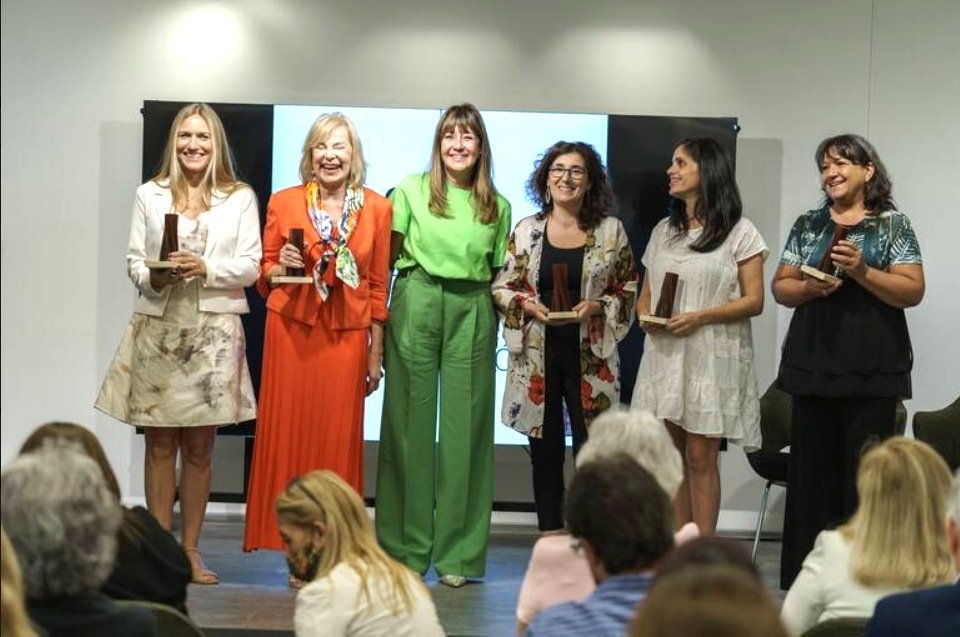
“We are going to talk about the role of women in unions, with a focus on Argentina,” they answered with conviction. Ricagno recalls, laughing, that they had never imagined that the improvised talk would end with such generous thanks. Even in places where things seem completely resolved, there are always little-visited topics “that women enrich and explain with their particular view of things.”
The unforgettable part of the trips also includes moments of astonishment, such as when “in Armenia they could not believe that a group of Argentine women had gone alone,” says Maricel Lugarzo.
Or the discovery that even in Israel, the democracy of the Middle East and one of the meccas of technology, “it still happens, as everywhere, that many women do not apply for financing in technology companies because it is still men who lead the projects in that field.”
Rules of the game
They never tire of working to “gain first-hand information on international trends and best practices through conversations with world leaders,” and then disseminate it to people and places where there is a desire to make plans happen.
Exchanging figurines has been a constant since they first thought of working together; they did it in Helsinki, in Yerevan and also in Azul, where they traveled some time ago to build links with the women who produce in that nerve center of Buenos Aires.
They define them with values such as “solidarity, generosity and transparency. We like to promote real equality of opportunity, and we emphasize the freedom that allows us to take advantage of these opportunities,” says the president of PP. “We don’t give many explanations about the subjectivity of our approach, and (as Graciela Adán, president of the Global Foundation and member of PP, once said), if no one asks men why they get together, who said that we should give explanations?”
This year, they plan to invite several women from the countries they have already visited to Argentina. With local and foreign women, the agenda will focus on women in democracy: “We would like to organize meetings so that the female candidates can tell us how they think Argentina will look in the future. Many of us flourished under the umbrella of democracy. We firmly believe in the Republic, and that we can only have plans if we respect its rules of the game.”
Recognize and celebrate
The aim is to make those who take risks and bet on the rest of society more visible, taking the initiative and overcoming obstacles to create a positive effect on others. The Mujeres por + award, given by Pollera Pantalón, is in its third edition. This year, the ceremony will take place the day after tomorrow, March 7, at the MALBA, at 6:30 p.m.
Celebrating the permanence and consolidation of democracy in Argentina, the organization will present Graciela Fernández Meijide with the Lifetime Achievement Award. In addition, the following will be recognized: María Alcira Garcia Reynoso, for the Jesús María Community Center (Education), Delfina Irazusta, for the Local Innovation Network (RIL) (Citizen Education), Mujeres de la viña (Agrifoods), Florencia Nicolet, for SeniorITty (Technology and Innovation), with a statuette and a cash prize sponsored by Banco Comafi, DirectTV and Experta Seguros.
In the 2021 edition, criminal lawyer Marta Nercellas (who is also a member of the founding group of PP) won the Lifetime Achievement Award. Silvana Figar, from the Hospital Italiano (Health/Current Affairs), María José Navajas, from Padres Organizados (Citizenship Education), Carmen Laffont, from Chicas programadoras (Education) and Pía Garat, from Eolo Pharma (Innovation) took home the rest of the awards.
“A unique point of the organization is that it is not made to highlight its own members; we join forces, and we become invisible in this chain of help. There is hardly one that stands out, and we all contribute. The award is an example of that: making others visible,” reflects Agustina Catone.
“In an Argentina that sabotages private initiatives, we are excited to show how women (often without credit) manage to contribute to the country's growth,” says Fabiana Ricagno. “Making their stories visible is also thanking those who dedicate their time and energy to improving the lives of all of us.”
Source: The Nation

